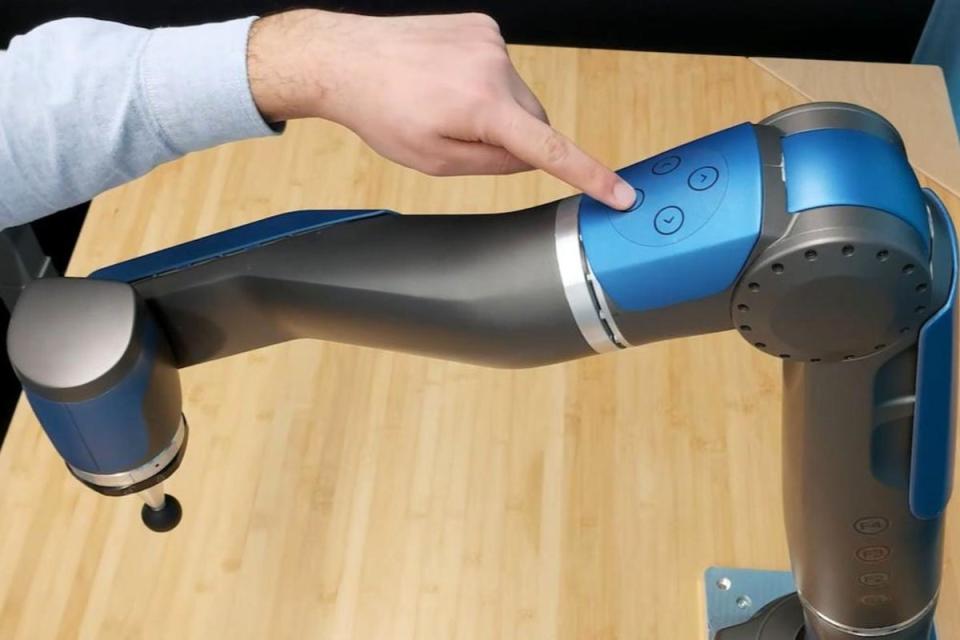
Scientists have actually uncovered a means to offer robotics a feeling of touch without the requirement for pricey artificial skin.
A group from the German Aerospace Centre rather made use of expert system to translate the signals from a robotic’s interior sensing units in order to precisely find outside pressure and stress.
The scientists stated the brand-new strategy would certainly negate the requirement for pricey biometric skins and sensing units, while likewise making it possible for a “shift from conventional modalities towards adaptability, flexibility, and intuitive handling”.
A principle developed by the group consists of digital switches, buttons and slider bars that can be easily put, relocated and set up in any kind of area on the robotic’s framework.
The arrangement permitted the robotic to find physical communications without requiring details touch sensing units.


The precision of the device finding out formulas indicated that the robotic was also able to find when numbers were mapped on its surface area, which can possibly enable totally brand-new means for people to engage with robotics.
“We were able to let the robot sensitively feel the surrounding environment and accurately localise touch trajectories in space and time that were applied on its surface by a human,” the scientists composed in a research describing the technical innovation.
“This opens up unexplored opportunities in terms of intuitive and flexible interaction between humans and robots.
“The intrinsic sense of touch we proposed in this work can serve as the basis for an advanced category of physical human-robot interaction that has not been possible yet, enabling a shift from conventional modalities toward adaptability, flexibility, and intuitive handling.”
The research study, entitled ‘Intrinsic sense of touch for intuitive physical human-robot interaction’, was released in the journal Science Robotics on Wednesday.
